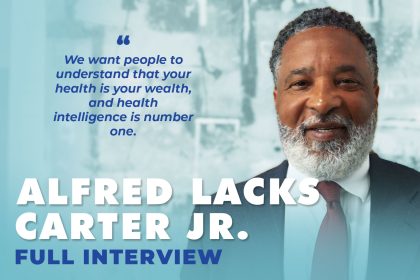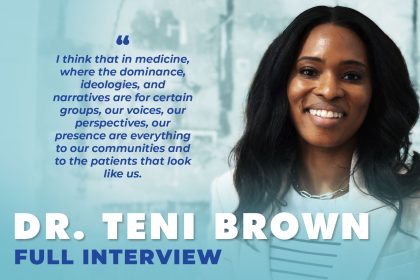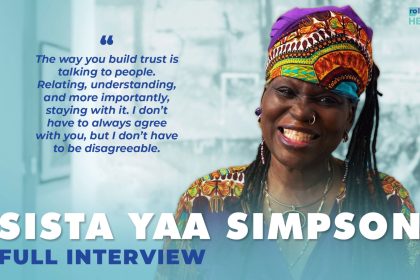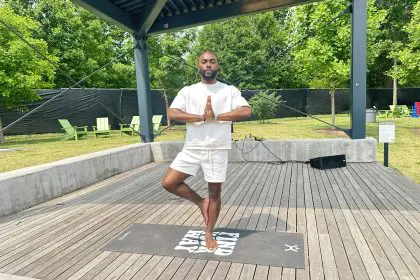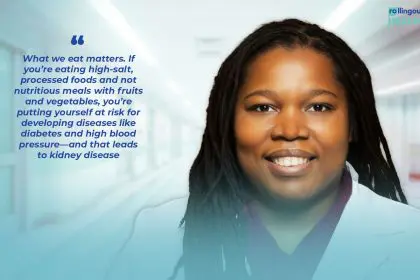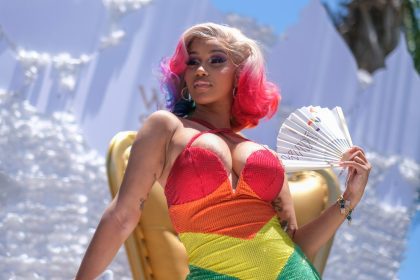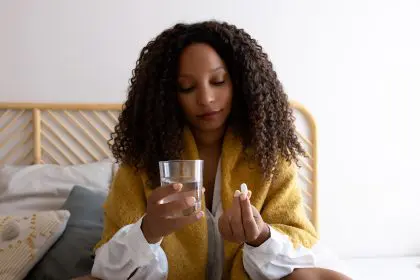Saving a life one day at a time, this sister with superpowers is on the front lines helping those in need of an organ. A committed advocate for donation, Janice Whaley knows what her purpose is and is determined to educate, inform, and inspire others around her who want to know the importance of National Multiethnic Donor Awareness Month.
As the president and CEO at Donor Network West, the organization substantially increased organ recovery performance across multiple metrics, saving hundreds more lives. Her leadership, advocacy, and operational efforts, in both the state of California as well as the nation overall, serve as evidence of her passion.
Please explain the purpose of National Multiethnic Donor Awareness Month?
National Multiethnic Donor Awareness Month is a month where we celebrate and also bring awareness to donation and transplantation. I believe we should do this every month because awareness is very important. With 17 people dying on the waitlist every day, awareness should be something that we do 365 days of the year. I think this month allows us to hone into communities of color, and educate them in the way they want and need to be educated about donation. It’s about listening. It’s about having conversations and discussing and dispelling the myths and misconceptions, but we have to listen. I think we have a huge opportunity to be better at that.
How can we have conversations about organ donation?
It is something that impacts everyone almost. People from all walks of life are there, nobody’s immune to organ failure. Some people are healthy, they have the flu, and the next thing you know they need a heart, or they need a lung. I think there’s an opportunity for us to have more conversations about it so that if something happens to you, the conversation has already been had, and people, your family members, in particular, know what your wishes are. In having those conversations, a lot of the myths and misconceptions also can be removed. I think that having these conversations and sharing with them what has to happen for the gift to take place is important.
What is one myth you’d love to dispel about organ donation?
One is that your loved one had to have an autopsy, and when the body was being prepared for the funeral, all the organs were gone, and you were told that they were probably used for transplantation. That’s not the way that it works. You have to be in a hospital, you have to be on a ventilator. I don’t want to get technical, but there are a lot of things that have to take place. There’s a lot of testing and organs that come out of somebody who has already been passed or not, they’re not viable for transplantation. I’ll share another one where somebody is knocked out and wakes up in a bathtub full of ice and there’s a sign that says, “Stop, call 911, one of your kidneys has been taken away.” There’s so much testing and matching that goes on that’s not going to happen, but people believe it because it’s there and it’s no different than all the myths and misconceptions that came around during COVID time. As a person of color, we have to feel that we can trust what’s happening and I think that I’m the best person to talk to someone who looks like me about what occurs and help that person understand as well. Sometimes hearing it from someone who looks like you is meaningful because the person feels comfortable talking to you about it. We have to do more of that. This month is dedicated to us, really meeting people having those hard conversations, and having those important conversations that may not be had with others, but people feel more comfortable when they’re talking to someone who looks like them.
How did the COVID pandemic encourage multiethnic donors to sign up?
I probably have a different perspective. I feel like there were a lot of potential donors that didn’t happen because, unfortunately, they passed away from COVID. I think it goes back to the level of trust, and dispelling myths and misconceptions. The impact was many people who could have donated couldn’t because they were afflicted by COVID. Everybody had their conspiracy theory about the pandemic. I don’t know that it hurt donations because we still did the same number of transplants. We were fortunate to still save as many lives as possible, but I do feel like there was a lot of opportunity for us to educate about donation and donation awareness. I didn’t see the impact that I thought I was going to see. I was very concerned that we would have fewer donors and fewer organs available for transplantation. Did it have an impact, yes. At the end of the day, we were fortunate to save as many lives as possible even during this time, and I think the conversations continued about the care that we provided. Sometimes we were that bridge, if they were losing a loved one who was a candidate, and they weren’t allowed in the hospital, we would be able to communicate with the family how they were doing and approach them about donation and empower them to give that gift.
How can people learn more about signing up?
You can sign up to register to be a donor at www.donornetworkwest.org. You can also do it at the DMV when you go to get your driver’s license renewed or if you’re a first-time driver’s license holder, you can sign up at that point. We still encourage people to talk to your family about it. Many families are unaware sometimes of that decision that you’ve made and we feel like it makes things easier both for the family and for you if that moment comes, they’re well aware of your wishes. I’ve told my parents a I’m a donor, and if something happens to me, make sure that I’m one I’m registered.
Can you share the impact and importance of having a pool of living donors?
I think that is the only way that we can get close to eliminating the waitlist, especially the kidney waitlist. Most people that are waiting on a transplant are waiting on a kidney. It is the most common need right now out there. We’re plagued with diseases such as hypertension and diabetes that cause kidney failure. Living donation is yet another way that you can be a hero to someone. You’re living and it goes past kidneys, there are people who give portions of their liver, and there are people who I’ve heard have given a portion of their lung to someone that needs it. It is an opportunity. I have an employee here, whose wife may in the future need a kidney transplant, and he is going to be a living donor, but he does not match his wife. He is going to donate to someone else in exchange for the opportunity for his wife in the future. If she needs a transplant, she will be in a kidney chain because he donated to someone else. She will have an opportunity to get a kidney from someone else who matches her if she needs it in the future. There’s a lot of power in that.

